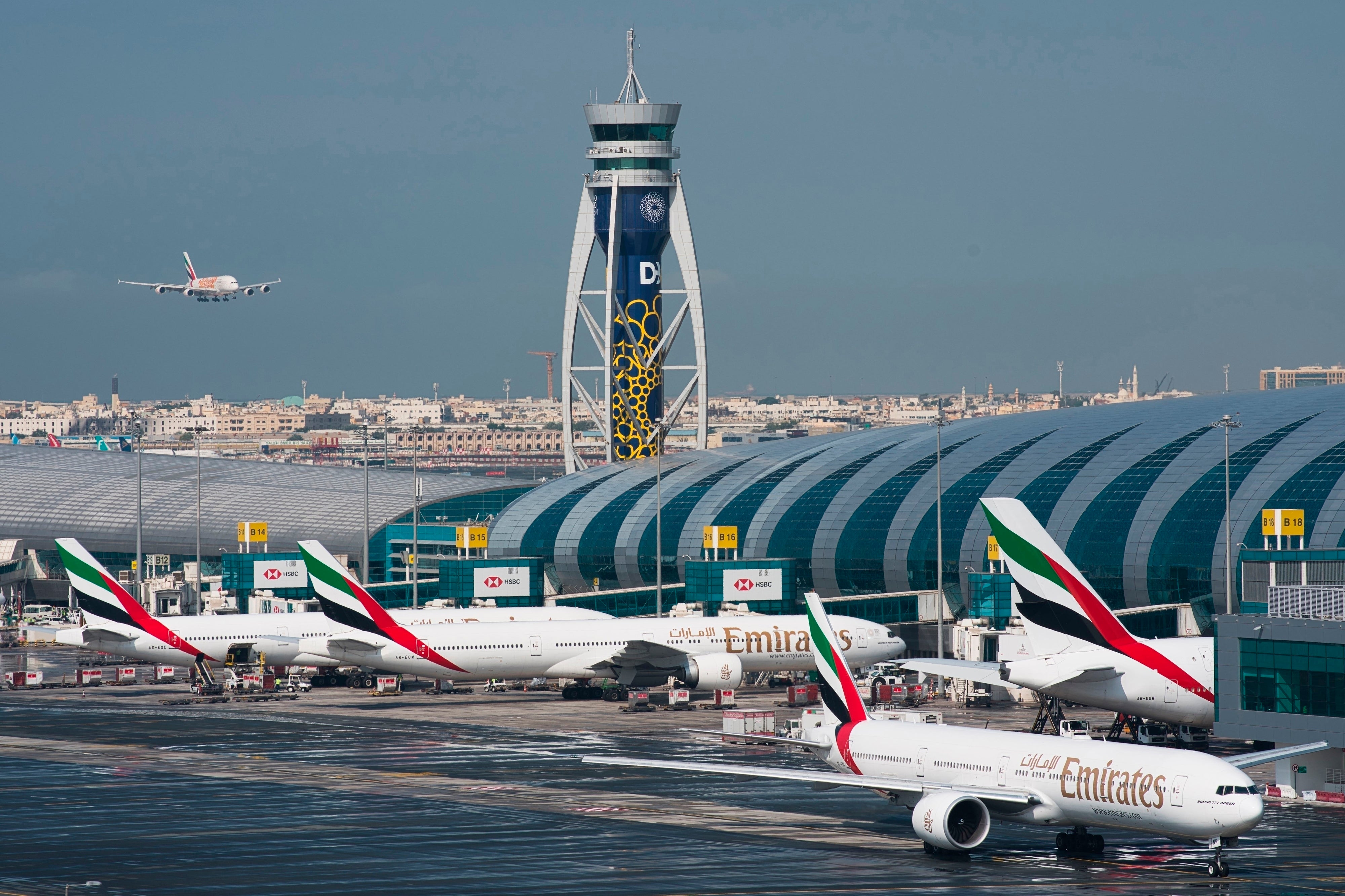Carrier Emirates test flies Boeing 777 on sustainable fuel
Long-haul carrier Emirates has successfully flown a Boeing 777 on a test flight with one engine entirely powered by so-called sustainable aviation fuel

Your support helps us to tell the story
From reproductive rights to climate change to Big Tech, The Independent is on the ground when the story is developing. Whether it's investigating the financials of Elon Musk's pro-Trump PAC or producing our latest documentary, 'The A Word', which shines a light on the American women fighting for reproductive rights, we know how important it is to parse out the facts from the messaging.
At such a critical moment in US history, we need reporters on the ground. Your donation allows us to keep sending journalists to speak to both sides of the story.
The Independent is trusted by Americans across the entire political spectrum. And unlike many other quality news outlets, we choose not to lock Americans out of our reporting and analysis with paywalls. We believe quality journalism should be available to everyone, paid for by those who can afford it.
Your support makes all the difference.Long-haul carrier Emirates successfully flew a Boeing 777 on a test flight Monday with one engine entirely powered by so-called sustainable aviation fuel. This comes as carriers worldwide try to lessen their carbon footprint.
Flight No. EK2646 flew for just under an hour over the coastline of the United Arab Emirates, after taking off from Dubai International Airport, the world's busiest for international travel, and heading out into the Persian Gulf before circling back to land. The fuel powered one of the Boeing's two General Electric Co. engines, with the other running on conventional jet fuel for safety.
“This flight is a milestone moment for Emirates and a positive step for our industry as we work collectively to address one of our biggest challenges — reducing our carbon footprint," Adel al-Redha, Emirates' chief operation officer, said in a statement.
Emirates, a state-owned airline under Dubai's ruler Sheikh Mohammed bin Rashid Al Maktoum, described the sustainable fuel as a blend “that mirrored the qualities of jet fuel.” It included fuel from Neste, a Finnish firm, and Virent, a Madison, Wisconsin-based company.
Virent describes itself as using plant-based sugars to make the compounds needed for sustainable jet fuel, while Neste's fuel comes from vegetable oils and animal fats. Those fuels reduce the release of heat-trapping carbon dioxide typically burned off by engines in flight.
Aviation releases only one-sixth the amount of carbon dioxide produced by cars and trucks, according to World Resources Institute, a nonprofit research group based in Washington. However, airplanes are used by far fewer people per day — meaning aviation is a higher per-capita source of greenhouse-gas emissions.
Airplane and engine manufacturers have been designing more-efficient models, in part to help keep down costs of jet fuel — one of the biggest expenses airlines face. Emirates, for instance, used over 5.7 tons of jet fuel last year alone, costing it $3.7 billion out of its $17 billion in annual expenses.
But analysts suggest sustainable fuels can be three times or more the cost of jet fuel, likely putting ticket prices even higher as aviation restarts following the lockdowns during the coronavirus pandemic.
It wasn't immediately clear how much the fuel used in the Emirates' test on Monday cost per barrel. Jet fuel cost on average $146 a barrel at the end of last week, according to S&P Global Platts.
The UAE, a major oil producer and OPEC member, is to host the next United Nations climate negotiations, or COP28, beginning in November. Already, the seven sheikhdom federation has come under fire from activists for nominating the CEO of Abu Dhabi's state oil company to lead the U.N. negotiations known as the Conference of the Parties — where COP gets its name.
___
Follow Jon Gambrell on Twitter at www.twitter.com/jongambrellAP.